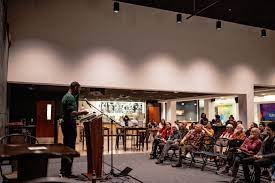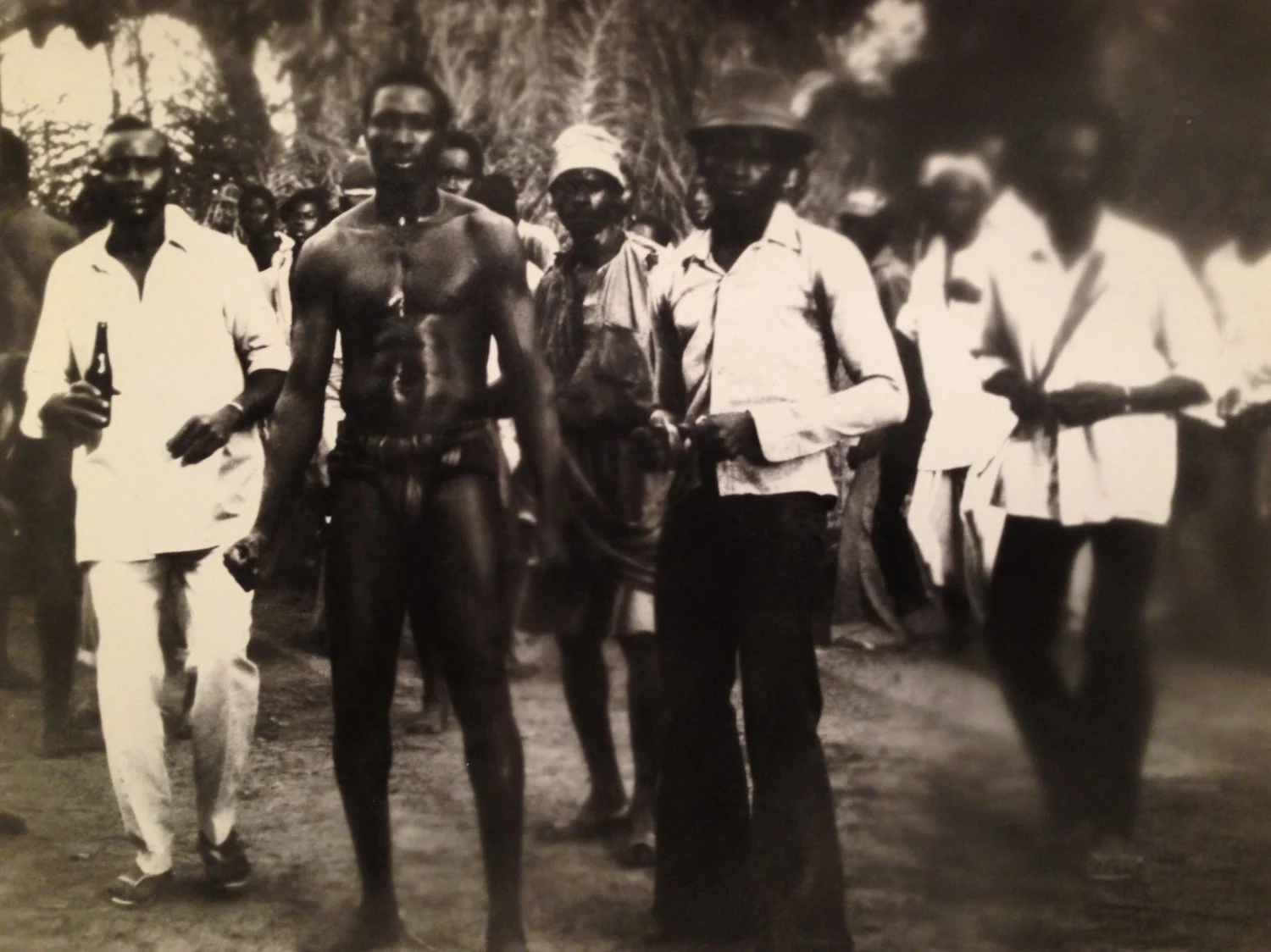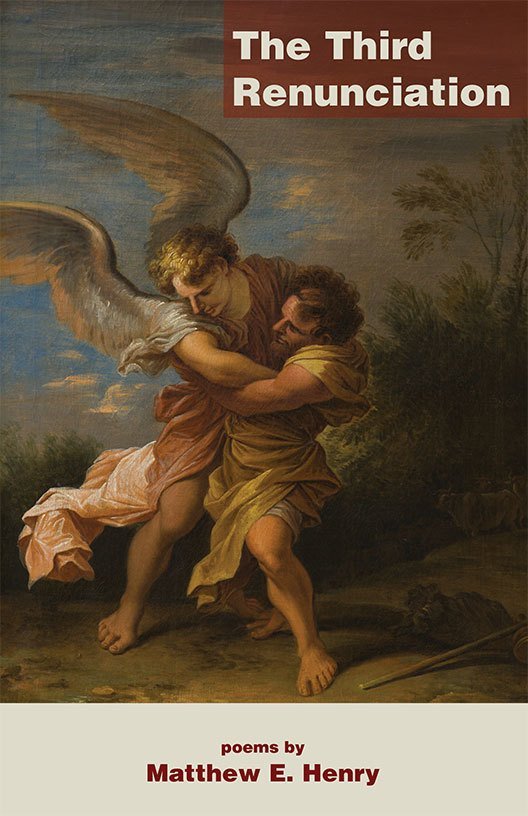I’m honored to have another poem appearing Presence . This time it is my ekphrastic poem “Job confronts Maggie Smith at a conference,” which is after Maggie Smith’s “Good Bones” and the Book of Job in the Hebrew Bible.
"White Woman Freedom" [CNF] in Identity Theory
She told me to eat, pray, live, laugh, and love. To be #Blessed. To appropriate dances like no one was watching the Black girls on TikTok. To vision board the fridge and every wall, with inspirational quotes giving no credit to the Black women on Instagram. Stolen, like their hair, lips, ass, and tan.
As Paul Mooney said, “Everybody wants to be a nigger, but nobody wants to be a nigger.”
My creative nonfiction piece “White Woman Freedom” was published in Identity Theory.
"breach" published in The Prose Poem
My ekphrastic poem “Breach” is after the Alison Saar sculpture by the same name and was recently published in The Prose Poem.
“Okonkwo returns to Umuofia” at Menino Arts Center
My poem “Okonkwo returns to Umuofia” was on display as part of the Menino Arts Center’s exhibit Images Then Words (January 9 – February 14, 2025), which featured the work of 53 Word Artists responding to 61 pieces by 47 Image Artists. Images juried & curated by Sasja Lucas. Words curated by Holly Guran. View the virtual 3D gallery here.
“Okonkwo returns to Umuofia” is a doubly ekphrastic work, responding both to Sasja Lucas’ The Wrestling Match (pictured below) and Chinua Achebe’s novel Things Fall Apart.
Sasja Lucas
The Wrestling Match
120mm film photography
8 x 10 in (h x w)
Okonkwo returns to Umuofia
seven years was a long time to be away from one’s clan,
but he would return to his fatherland and fan his fame—
a bush-fire beneath the stiff harmattan wind. he had a plan:
reclaim his land, rebuild his compound, regain his titles and place
among the egwugwu. but Okonkwo was not prepared
for what he found. his motherland was good to him in exile,
kind. but Mbanta was not filled with warriors. they were weak.
how else could they fall from the grand, old ways—the bonds
of kinship—and allow an abominable religion to fester
like an un-lanced boil or an untreated bout of iba? his Umuofia
was feared by her neighbors, known for her power in war
and in magic. her priests and medicine men possessing
the most potent rites and fetishes, the shrine of agadi-nwayi
among them. thus Okonkwo could not believe Obierika’s reports
of home. but by the second market week back, he began to see
the truth. how his brothers strut across the village square
in white shirts and dusky trousers, abandoning the loincloth
and wrappers worn since the founder of the clan engaged a spirit
of the wild for seven days and nights. how his kinsmen drink
palm wine tapped in Umuru from glass bottles, their gourds
and skulls gathering dust on their obi walls. how titled men
allow themselves to be dragged by kotma to the white man’s court,
to be beaten by his perverted justice. how even some elders dance
to the rhythm of the white man’s religion, deaf to the ekwe
and ogene talking across villages, across the clan’s history.
how supposed men stride—hatted heads held high—to and from
their abomination, their church, in the Evil Forest, believing
their Jesu Kristi will save them from the wrath of Ekwensu and Ani,
Amadiora and Chukwu. it was easier when the converts were only
efulefu—sheaths taken into battle, machetes forgotten at home,
the excrement of the clan lapped up by this mad-dog faith. but now
even Ogbuefis have severed their anklets, become as agbala, to join
the Christians’ meager feast of their god-man’s murdered body.
something must be done. but surrounded by so many such as these…
as cold water poured on a roaring fire, he stifles a sorrow, a grief
he has not known since the last days of the son whose name will not
be remembered in the clan and the one who will. his fist aches,
reflexively clenching around the machete resting inside his obi door.
he will shake out his smoked raffia shirt, examine his feathered headgear
and shield to satisfaction. he turns for home as if on springs, heels
hardly touching the ground. as the elders say,
whenever you see a toad jumping in broad daylight,
know that something is after its life.
CLMP reading list for Black History Month
Two poems in Lily Poetry Review
I am very proud that two of my ekphrastic poems were published in the latest issue of Lily Poetry Review , guest edited by Anthony Walton and Heather Treseler.
"The Most Dangerous Game" is after a poem by Candice Kelsey (and the short story) of the same name
“La Voix du Silence" is after a painting by Rene Magritte of the same name.
“when asked what it’s like being a poet” in Whale Road Review & Nominated for a Pushcart
My poem “when asked what it’s like being a poet” is is based on one of my favorite poems to teach, “The Art of Disappearing” by Naomi Shihab Nye. It is published in the latest issue of Whale Road Review, and have been nominated for a Pushcart Prize!
New Creative Nonfiction Editor at Porcupine Literary!
I’m the new CNF Editor at Porcupine Literary, a journal for and by educators. Yes, you read that right: CNF, not poetry editor. It’s a strange world. But I’m starting to embrace the whole “I write prose, specifically CNF a lot these days” aspect of my (writing)life.
Send your stuff our way!
"Perspective" nominated for a Pushcart
Happy to hear that my CNF piece “Perspective” was nominated for a Pushcart Prize by After the Art.
"Explaining 'the patron saint of suicide'" published in Nixes Mate
My creative nonfiction piece “Explaining ‘the patron saint of suicide’” was published in Nixes Mate Review.
As the title suggests, this is an essay that braids the stories of
writing the poem “the patron saint of suicide” (originally published in Cola Literary Review, but also appearing in said the Frog to the scorpion),
how well I disassociate while doing poetry readings, and
a night when I didn’t disassociate while reading “the patron saint of suicide.”
DMQ Poetry Salon
Proud to read for Disquieting Muses Quarterly’s (DMQ) Poetry Salon
"Theme & Variation" published in Porcupine Literary
A dialogue-driven piece of creative nonfiction was published by Porcupine Literary.
“Theme & Variation” is ready for your eyes.
"reflection" nominated a for Best of the Net award
Decolonial Passage published three of my poems, including “reflection,” which has now been nominated for a Best of the Net Award.
“reflection” is an ekphrastic poem after James Barnor’s Self-Portrait with a Store Assistant at the West African Drug Company, 1952
The Third Renunciation reviewed in Pedestal Magazine
The Third Renunciation was just reviewed in Pedestal Magazine and I’m at a loss for words. It’s always humbling when a review “gets” a collection in a special way.
"Perspective" published in After the Art
I wrote a poem entitled “notice five things” (which is currently a finalist for the 2024 Beals Prize for Poetry (more on that later) based on my visits to art museums while composing a manuscript in progress. I also wrote a creative nonfiction version of the events (sort of, kind of), which was just published in After the Art.
“Perspective” is now out in the world.
"being present" nominated for a Best of the Net in prose!
One of the pieces I’m most proud of writing, “being present,” was just nominated for a Best of the Net Award in prose! It was originally published in Porcupine Literary (which previously nominated it for a Pushcart).
"believes all things" nominated for a Best of the Net
3Elements Literary Review has nominated “…believes all things” for a Best of the Net!
"Matthew E. Henry of Ohio" published in Had
Award (almost) announcements
Two close but no cigar announcements:
I.
Selections from Selling the World (my ekphrastic manuscript in progress") was longlisted for the Kinsman Avenue Publishing African Diaspora Award. My poems “Adoration of the Magi,” “Bust of Akhenaten,” “homegoing,” “The Moorish Chief,” & “Quilt” will all published in a forthcoming anthology.
II.
The Third Renunciation was a finalist for the New England Poetry Club Sheila Margaret Motton Book Prize. This is the second time I’ve been a finalist for this prize.
"...could abash the little bird" in The New Verse Review.
My poem “…could abash the little Bird” was published in the inaugural issue of The New Verse Review.
It’s an ekphrastic poem based on Emily Dickinson’s '“‘Hope’ is the thing with feathers…”., with a MEH twist.




















